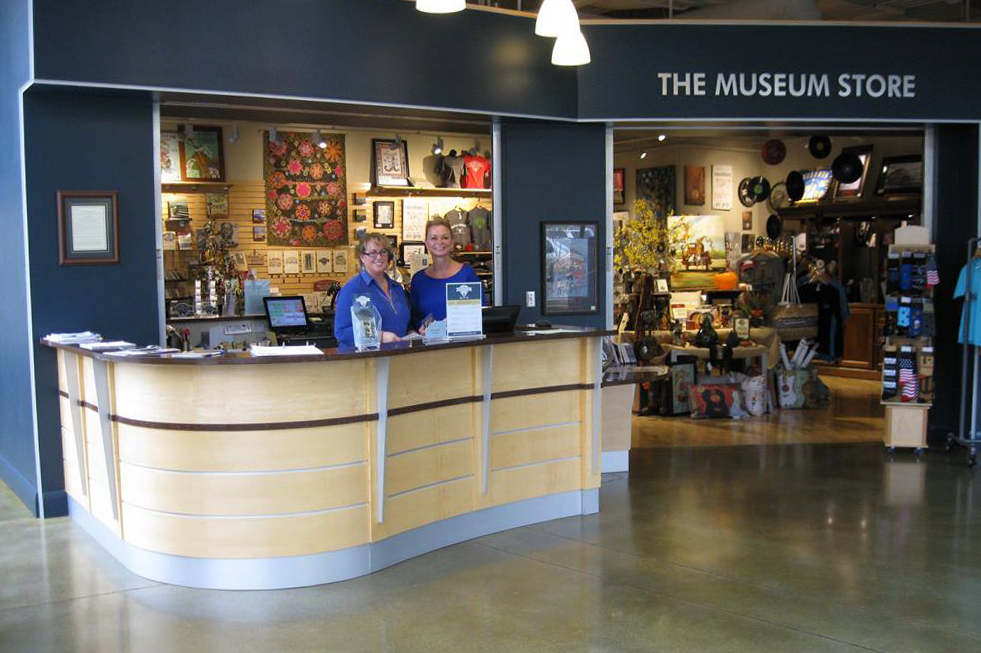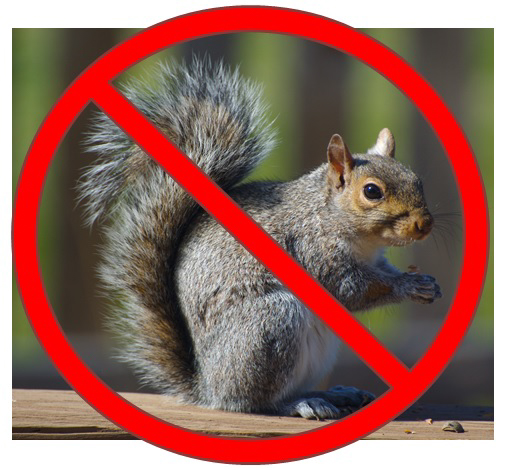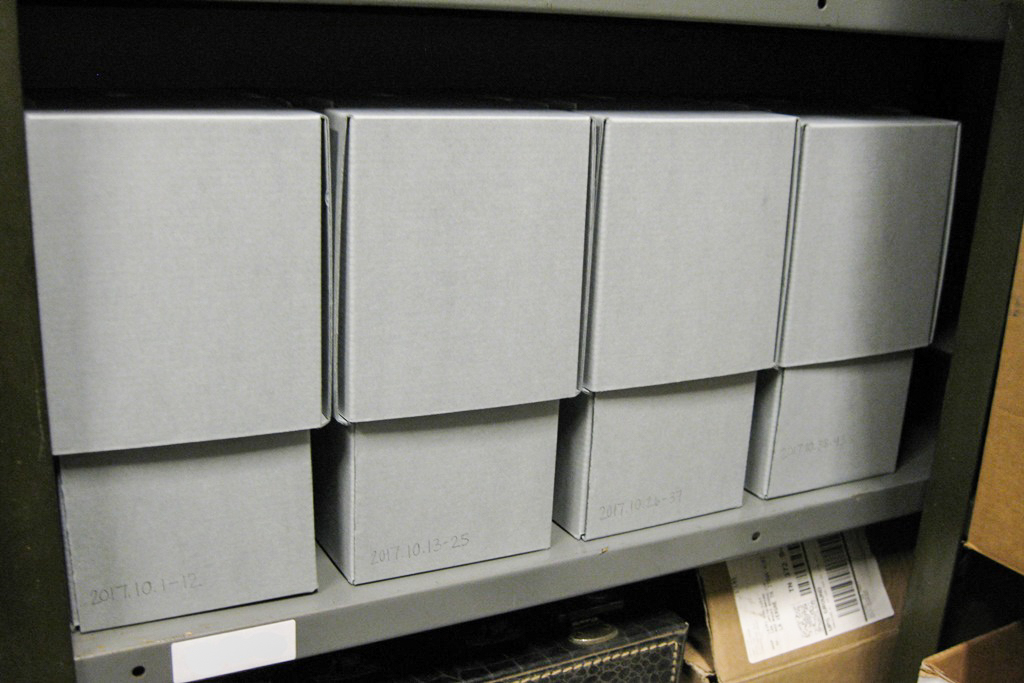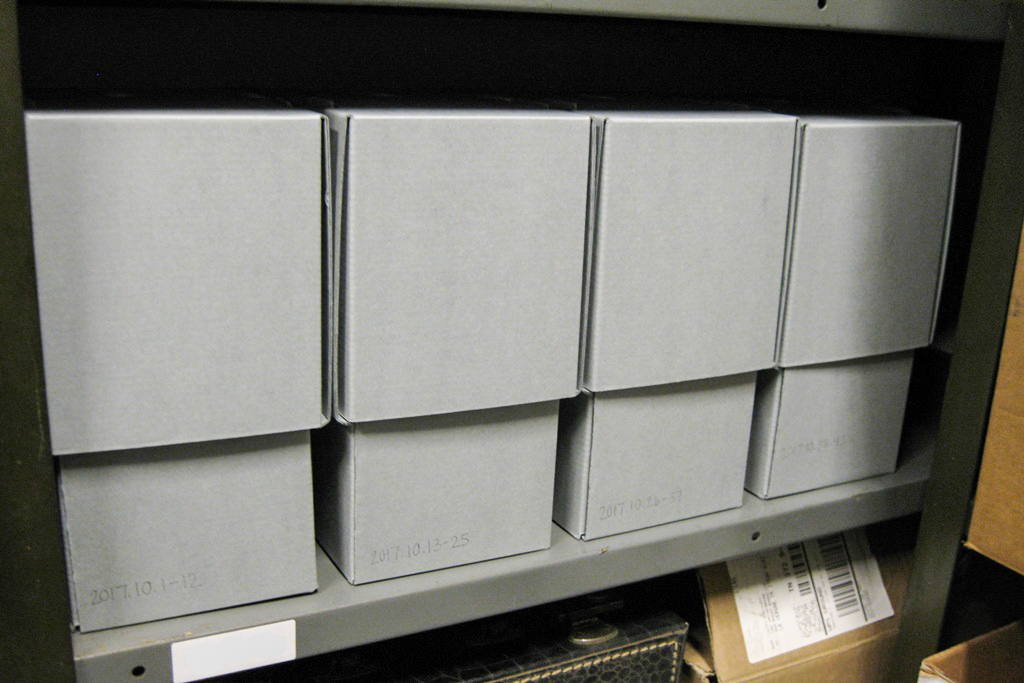As the museum collections manager, it’s my job to take care of and keep track of all the STUFF in the museum. Which is great, because I love old stuff! I love my old stuff. I love the museum’s old stuff. I might love your old stuff, too!
In the museum biz, though, we have to put the brakes on our love of stuff and be very thoughtful about what we bring into our permanent collection. We’re talking about a serious long-term relationship, to have and to hold, forever and ever. It’s not something to be entered into lightly. Have you ever brought an object to the front desk of a museum, only to be told that you need to make an appointment and come back later? What’s the big deal about dropping something off? Well, it’s not you, it’s us – I promise. Let me explain…
My other true love is paperwork
When we accept objects into the museum’s permanent collection, we really do mean permanent. The museum is promising to be stewards of these important historical objects and to keep them in perpetuity. As a nonprofit organization that serves the community, we take our duties as stewards of these objects seriously. We keep track of them and take care of them so they will be available to the community for research and via exhibitions and publications. Through saving objects and audio/visual material, we are saving and perpetuating the incredible stories of people in our community and region.
Keeping track of the museum’s objects, their condition, and their location involves a lot of database records, file folders, lists, photographs, tracking numbers…you get the idea. The Collections Management department is responsible for the large amount of tracking documentation and legal paperwork that follows each and every object we accept, so it makes sense for us to be the ones to be the gateway for object donations. Our friendly and hardworking Visitor Services staff has plenty to do without having to keep track of objects and huge amounts of paperwork, too! It would be tragic if something was dropped off at the front desk and it got lost in the shuffle, or if the amazing story behind an object got lost. To keep things straightforward and streamlined, our policy only allows the Collections Management staff to accept objects.

If I can’t have the one I love, I won’t have none at all
You may have heard the Smithsonian Institution referred to as “America’s Attic.” That makes collections managers cringe, because not only are attics too hot for storing museum objects, but attics are notorious for being disorganized. Also, sometimes they have squirrels in them. We pride ourselves here at the Birthplace of Country Music Museum on being both organized and squirrel-free!

In order to remain so, we have a Scope of Collections. Instead of collecting anything and everything related to country music and Bristol, we collect objects that support the types of exhibitions we want to do. This is driven by the Birthplace of Country Music’s mission, which is to perpetuate, promote, and celebrate Bristol’s rich musical heritage; to educate and engage audiences worldwide regarding the history, impact and legacy of the 1927 Bristol Sessions from which we derive our name; and to create recognition, opportunities, and economic benefit for our local and regional communities. You can find a list of what we do and do not collect here! The Curatorial and Collections staff carefully reviews each and every potential object donation to be sure it fits our mission before we make room for it on the shelf – this is another reason we require an appointment to discuss donations.
I just need some space
We have our Scope of Collections not only as a guide to help us keep our collecting activity mission-driven, but also for practical reasons. For one thing, we want to provide meaningful collections for research and not collect the exact same things that other institutions are collecting. Additionally, we simply have limited space, time, and money! Before we agree to take an object or collection of objects, we have to make sure we have a safe place to put it. We also have to plan our budget to cover costs associated with processing new objects – things like archival boxes, supportive foam and tissue, new shelving, and staff time. Speaking of staff time, it can take weeks (or even years, depending on the size of the collection) to fully process a donation of objects. Because of these constraints, we must be careful to only accept objects that are truly within our scope.

Call us, maybe?
If you think we might want your object to have and to hold, in the public trust, forever and ever, please don’t drop it off at the front desk. Your stuff is special! It deserves careful consideration and attention! To make sure I can provide that attention, please email me at erobinson@birthplaceofcountrymusic.org or call me at 423-573-1927. I will happily find a time for us to talk about the potential of a serious long-term relationship between the Birthplace of Country Music and your amazing STUFF!
Emily Robinson is the Collections Manager at the Birthplace of Country Music Museum.


